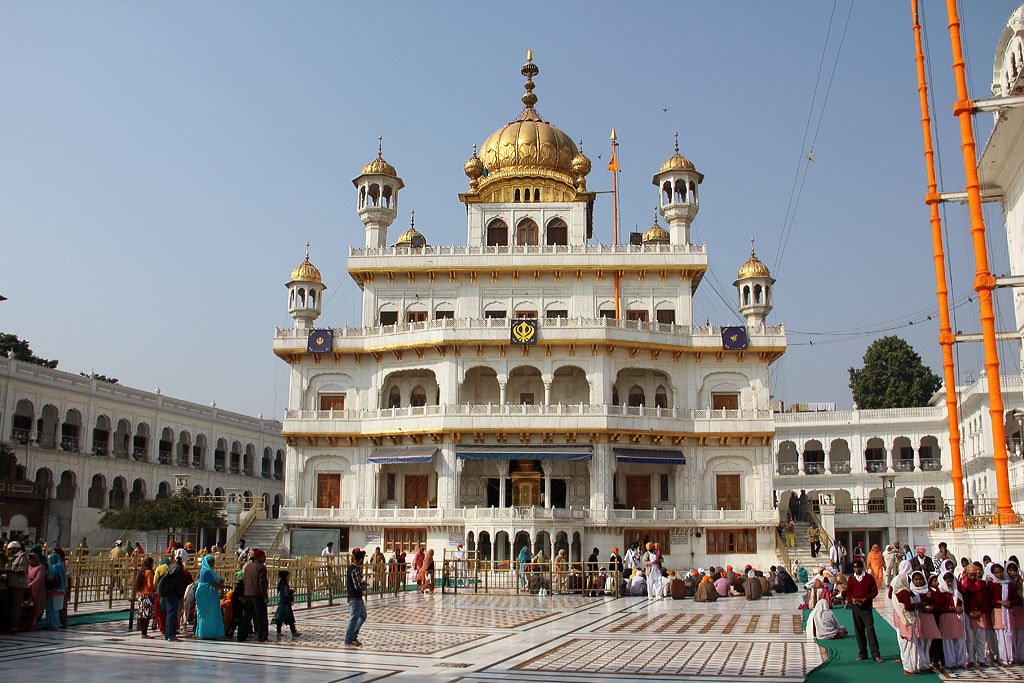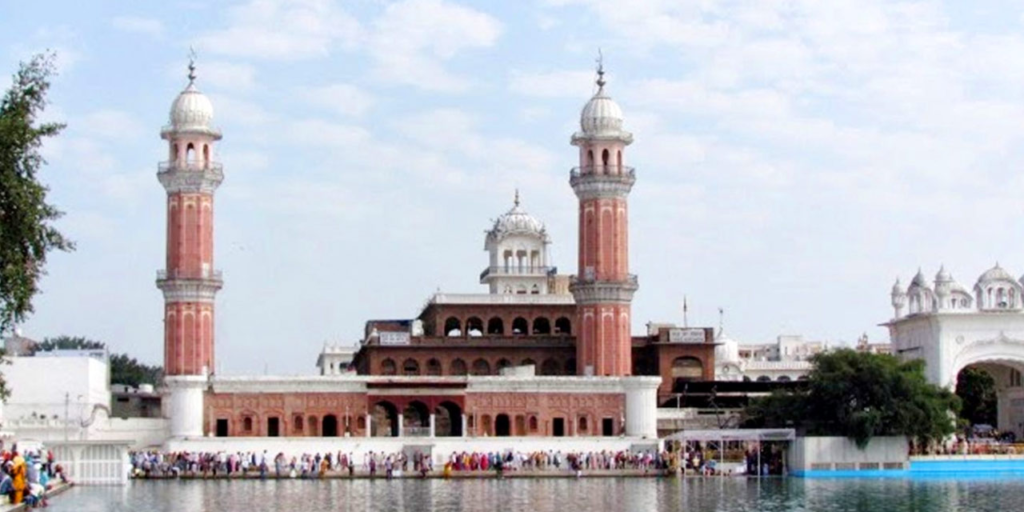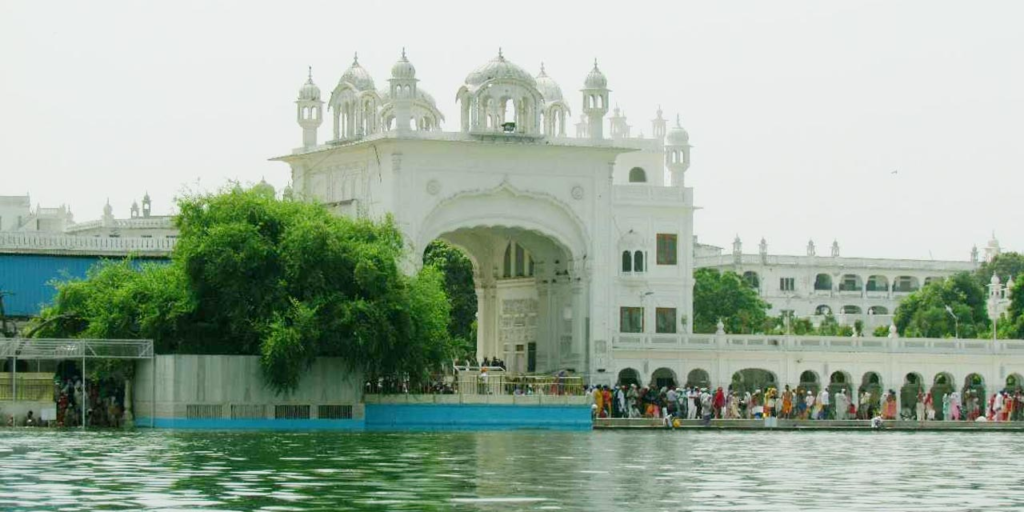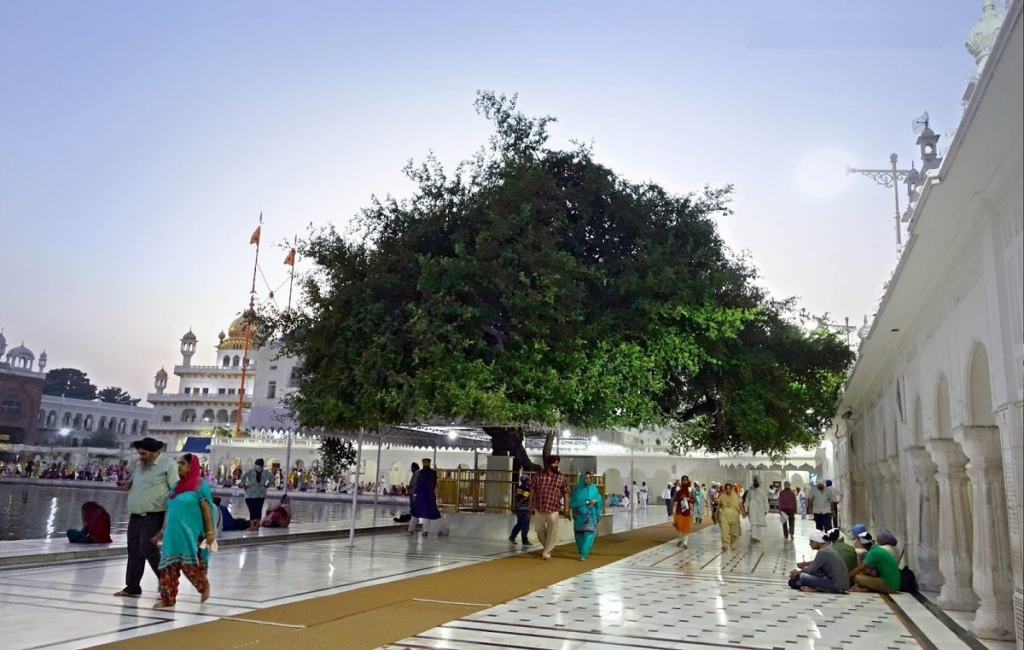A Complete Tour Guide to Golden Temple Amritsar: History, Other Sites
The Golden Temple, also known as Sri Harmandir Sahib, is an iconic Spiritual landmark situated in the heart of Amritsar, a city renowned for its rich history. The city is situated in the northwestern region of the Indian State of Punjab. The city was built by the Fourth Guru of Sikhs, Shri Guru Ramdas ji, and was initially called Ramdas Pura or Chakk Guru Ramdas.
The Golden Temple is surrounded by a vast holy tank, known as Sarovar. The main building is a two story structure, the upper level of the building is covered with golden plates and the lower level is made of white marble. The golden dome represents an inverted lotus, a symbol of purity in Sikhism.
History of Golden Temple
Foundation and Construction
At the time of Guru Nanak Dev ji, the city was a very beautiful forest where sages from distant places would come to meditate, but the place got its real identity when Guru nanak dev ji reached there. During the Udasis, Guru Sahib rested at this place with Bhai Mardana ji while enroute to Sultanpur. There, Bhai Tara Singh from Sultanpur prepared Krah Prashad for them. Bhai Mardana ji liked the prashad very much and he declared it to be Amrit (nectar). With this, Guru Nanak dev ji prophesied that there would always be Amrit in that place.
After this, Guru Nank Dev ji visited that place many times with Bhai Lehna Ji. After the martyrdom of Guru Nanak Dev Ji, Bhai Lehna ji, who later became the 2nd Guru of Sikhs, was named Guru Angad Dev Ji, continued to visit the sacred place. Guru Angad dev ji often had a pain in his feet. He applied a special herb to his feet, native to the same place, resulting in the complete relief of his pain.
From Guru Angad Dev Ji, the 3rd guru of Sikhs, Guru Amardas ji learned about the place. He also visited there many times and mediated there. Guru Amardas ji was the one who decided to establish a city here and bought land from Zamindars of Tung Village, Under the command of Guru Ramdas ji, the fourth guru of Sikhs, the excavation of the holy pool began After the martyrdom of Guru Ramdas ji, the construction of holy pool continued under the command of 5th Guru of Sikhs, Guru Arjan Dev Ji.

Guru Arjan Dev ji decided to establish a Guruduwara at the centre of the holy pool where Guru nanak dev ji, Guru Amardas ji recited their worship. The construction started under the command of Baba Buda Ji. The Foundation stone of Golden Temple was laid by Sai Mian Mir Ji. After this, on August 30, 1604, the first prakash ritual was performed, and Baba buda ji appointed as first head granthi of the Golden Temple.
Architectural Significance
Guru Arjan dev ji designed the map of the Golden Temple himself. Guru Sahib had a profound thinking behind the construction of the Golden temple. If you notice that the Golden Temple is constructed down side as compared to other pilgrimage sites.
When Baba Budha Ji asked about it, Guru Sahib said that only those who are humble at heart can truly attain the presence of God.
And the four doors constructed in the Golden Temple which are perceived as facing the four directions,are actually positioned diagonally, merging two directions like north-west. The ideology behind represents that the people from any caste, colour or religion can come here and seek the blessings of God.
Other Historical Sites to explore within the Golden Temple Complex
Akal Takht

Akal Takht is the one of the five takhts in Sikhism, situated opposite the Golden temple. The name is derived from two words ;Akal’, which means timeless or eternal, and Takht’, which means power. Therefore, it can be translated as the seat of eternal.
Akalt Takht was established in 1606 by Guru Hargobind Ji, the sixth Sikh Guru. It was at this place that Guru Hargobind ji adopted two swords, Meeri and Peeri. In Sikh history, Akal Takht is the symbol of power, where the Guru Sahib would make the political decisions, whereas Golden Temple is the symbol of Worship of God. That’s why the Akal Takht is built taller than the Golden Temple.
Sun Clock in Golden Temple Complex

When you head to the Golden Temple from Darshani Deori, right in the middle of that bridge, there is a pillar with a triangle-shaped copper structure placed on the top, known as the Sun Clock.
The Sun Clock was invented by Sardar Lehna Singh Majithia during the time of Sikh Empire and than gifted to Maharaja Ranjit Singh. Maharaja Ranjit Singh was impressed by his creation and awarded him the title of Kasir-Ul-iktidar and then this sun clock was gifted to Golden Temple by Maharaja Ranjit Singh.
Central Sikh Museum
There is a Museum in the Golden Temple which is dedicated to showcasing the history, culture and religious significance of sikhism. The museum was established on 5th of july 1958 and the construction of the museum was started by Baba Jandha Singh ji.
The museum is situated on the first floor of the Golden Temple Clock Tower. The museum is open seven days a week from 7am to 7pm in summer and 8am to 6pm in winter. The museum has more than 700 images related to Guru Sahibs, their families, Guruduwara’s sewaks, martyred Singhs and Singhnis, empty shells of 18th-20th century weapons, Sikh Empire coins, holy books etc.
Ramgharia Bunga

Inside the Golden Temple Complex, you’ll find two tall buildings standing on opposite sides. Those buildings are called Ramghria Bungas. The buildings were established by the founder of Ramgarhia Misl, Sardar Jassa Singh Ramgharia, who was a prominent Sikh leader in the Sikh community.
The buildings were constructed to keep an eye on the Amritsar city and for the protection of The Golden Temple. The buildings are 156 feet tall and their route passes through the right side of Langar Hall.
Dukh Bhanjan Beri

Dukh Bhanjani Beri is a special place where Bibi Rajini’s husband, Pingla, who had a disability, miraculously got better after taking a bath. The story behind this begins with a haughty man named Chaudhary Duni Chand. He wanted his daughters to always obey him. Everyone in the town did what he said, especially when it came to food. But there was one girl, Bibi Rajini, who grew up in Lahore. She believed in Guru Ji’s teachings that said we all follow one God, and we eat what God provides.
Duni Chand didn’t like her answer, so he got mad and married her off to a man named Pingla. Bibi Rajini, trusting her faith, carried her disabled husband in a basket on her head to Dukh Bhanjani Beri. After leaving him there, she went to a nearby village.
While she was away, something amazing happened to Pingla. He saw black crows turn into white swans when they dived into a lake. Inspired, Pingla used a berry root to dive into the lake, and thanks to Guru’s grace, he got better.
When Bibi Rajini came back and saw her husband healthy instead of sick, she worried he might be harmed. When Guru Ram Das Ji heard about it, he eased Bibi’s fears. He explained that because of her devotion, determination, and the power of the shrine, her husband Pingla got better. Guru Ji, Himself named the place “Dukh Bhanjani Sahib” because of this miracle.
Har ki Pauri

Har Ki Pauri is located at the backside of the Golden Temple and is considered to be the gateway to God. Devotees visit this sacred place to consume the holy water. Additionally, an interesting fact about this location is that regardless of the water level in the Amrit Sarovar, it never rises above Har Ki Pauri and always remains below it
Beri Baba Budha Ji

This is the second Beri in the Golden Temple complex. It is the place where Baba Budha ji sits and serves at the Amrit Sarovar and Golden Temple.
Gurudwara Shri Lachi Ber Sahib

This is the Third Beri in the Golden Temple complex, situated at the Parikrama Campus of Golden Temple.
This Beri is known for its Indian Jujube fruit, which has a sweet and cardamom-like taste. Additionally, there’s also one more historical event associated with this place, Bhai Mehtab Singh and Bhai Sukha Singh tied their horses at this place when they came to kill Massa Rangar who depleted the purity of this Holy Pilgrimage.
Gurdwara Baba Atal Rai Sahib

The Gurudwara Sahib is constructed in memory of Baba Atal Ji, the son of Guru Hargobind Singh Ji, who was known for his intelligence at a very young age. This is the place where his body was cremated.
This building is situated in the southern direction of the Golden Temple. It is approx 135m away from the Sarai Guru Ram Das Building. It’s a 9-story building and this is the tallest building in Amritsar City.
Old Gate from the times of Operation Bluestar
There is an Old gate in the Golden Temple Complex from the times of Operation Blue Star 1984 when Indian Govt. Ordered to attack in Golden Temple. To this day, the gate is preserved as it was during that time. Devotees come to see the bullet marks, a reminder of what happened during the 1984 Genocide, to understand the impact of the government’s actions on this sacred place.
Golden Temple Nowadays
The place suffered from many dark phases whether we talk about the Mughal Empire, Abdali times or British period. Despite many outsiders coming and causing harm to the purity of the holy tank, the beauty of the Golden Temple has only improved with time.
According to a Hindustan Times article, the Golden Temple gained recognition as one of the most visited pilgrimage places in the world. Today, the infrastructure both within the complex and in the surrounding area has developed significantly. This not only makes the place a preferred destination for pilgrims but also the top choice for travel enthusiasts.
How to visit
The Golden Temple is one of the most popular places in the world. To visit the Golden Temple, you can travel by road using your own vehicle, public transportation, or by walking. The Golden Temple is located on Golden Temple Road, on the Atta Mandi side near Katra Ahluwalia. Several roads lead to Golden Temple Road. For the most accurate and fastest route, you can use Google Maps. Here is the pinpoint location of the Golden Temple. and to know more about amritsar visit you can also check our A complete amritsar tour guide: Click Here
FAQs
The best time to visit Golden Temple is between 3-5 am. During the early morning, there are fewer crowds compared to other active times. Crowd levels also vary depending on special occasions, festivals, weekdays, or seasons. In winter, the crowd is generally less compared to other seasons. On festival days, the crowd can double or even more. Nowadays, weekends like Saturday and Sunday are also more crowded.
Following are the rules to be followed to enter in the Golden Temple:
- Visitors have to remove their shoes and submit in the Joda Ghar before entering the main complex
- If you are a non sikh person and don’t wear a turban, you have to cover your head with a scarf or handkerchief before entering the complex.
- Visitors should wear modest and respectful clothing; any type of immodest clothing is not allowed in the complex.
- If you have drunk or consumed any type of intoxicant or smoking & tobacco product then you are not allowed in the complex; you should come in a sober state.
The average time required to the Golden Temple Darshan via line is 2-4 hours, but this may vary depending on special occasions, festivals, weekdays, or seasons. More crowds means more time is needed to visit the Golden Temple. If you wish to explore the entire Golden Temple complex, including the inside temple darshan, an average of 5 hours is required.
No, there is no VIP entry in the Golden Temple. The place treats everyone equally, whether they are the president of a country or just an ordinary man. Only those individuals who hold esteemed positions in the Gurudwara, such as Head Granthi Sahib Ji and Ragi Sahiban, are permitted to enter from the sidelines like VIPs. In Sikhism, these individuals are regarded as the Guru’s Wazir (ministers).
Following are things not allowed in the Golden Temple:
- Footwear inside the complex
- Smoking or any type of Tobacco products
- Weapons
- Intoxication like Alcohol, etc.
- Hats or any type of head wearables (you need to cover your head using cloth)
- Disrespectful behaviour
- Unauthorised photography
- Immodest, showy and short clothes
Before the establishment of the golden temple, there was a tree in the center of the holy pool, where Guru Amardas ji usually sat and recited the worship of god. That’s why Guru Arjan Dev ji decided to build a Gurdwara there.

